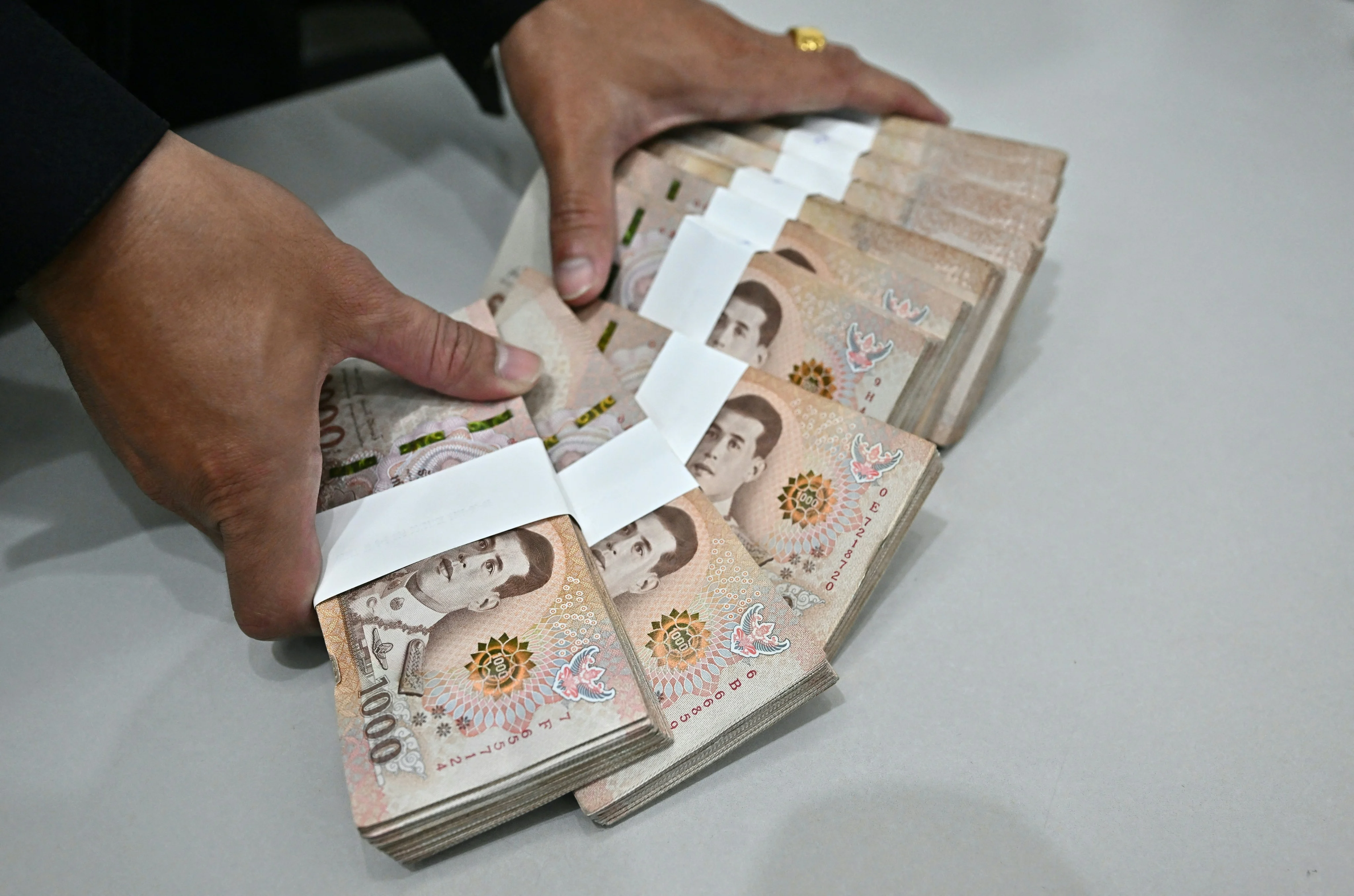By Aidan Jones,Reuters
Copyright scmp

From farms and factories to hotels, Thai businesses are feeling the bite of a strong baht, which is eroding export margins and raising fears that holidaymakers will seek better value destinations elsewhere in Asia.
The surging currency has added to the pile of problems for Thailand’s economy, which has slowed after two years of political instability.
The baht has gained more than 8 per cent against the US dollar this year, rising from 34 to the dollar on January 1 to a high of 31.70 on September 9 before easing back to about 32.40.
The appreciation has trimmed the value of the country’s exports, just as bruising 19 per cent tariffs imposed by Washington start to be felt.
Peyton Enloe, an American exporter of Thai farm produce, said the baht’s strength had made contracts less profitable and business planning more uncertain.
“The strength of the baht reduces our competitiveness with neighbouring countries for a range of agricultural exports we are regularly shipping and has reduced margins on existing deals,” Enloe told This Week in Asia.
“Its enduring strength has made it difficult to plan for longer-term contracts, as most reasonable speculation would have seen it depreciate by now.”
Tourism operators fear the impact could be just as severe, with frugal travellers turning to cheaper alternatives such as Vietnam and Malaysia.
Foreign arrivals fell 7.52 per cent between January and September compared with the same period last year, the Tourism Ministry said, bringing total visitors to nearly 24 million. Malaysia accounted for the largest share, while China was close behind with 3.38 million.
Tourism operators are now bracing for an unusually slow Golden Week, which started on Wednesday, as Chinese travellers stay away amid the strong baht, a slowing domestic economy and safety concerns over scams and kidnap gangs targeting compatriots in Thailand.
The number of Chinese arrivals is expected to decline by 24 per cent from 262,001 in 2024, Thapanee Kiatphaibool, governor of the Tourism Authority of Thailand, said according to the Bangkok Post.
That would spell tens of millions of dollars in losses for tourist businesses, which have endured a tough low season and typically look for an October bounce through Golden Week travel from China.
The currency woes are an immediate headache for the government of new Prime Minister Anutin Charnvirakul, who has vowed quick-fix stimulus measures to revive an economy that is expected to grow at just 1.8 per cent this year, well behind regional rivals.
His plans include reducing living costs, addressing high household debt and providing cheap loans to help small businesses ride out the downturn.
Finance Minister Ekniti Nitithanprapas said on Wednesday that he had asked the central bank to ensure the baht was not “too volatile”, while rejecting suggestions that gold trading was a major factor in its rise.
His comments came amid speculation that surging gold exports – 88.4 tonnes worth US$8.73 billion this year – have contributed to the appreciation, as exporters convert their earnings back into baht.
Beyond the baht’s rise, broader indicators have underscored the depth of the country’s economic slowdown, leading ratings agencies to downgrade their outlook for the kingdom.
Factory output contracted 4 per cent in August while exports grew at 5.8 per cent, the slowest month in nearly a year, according to the Commerce Ministry.
For people who get paid in dollars, the conversion rate is starting to hurt.
“Every month my income shrinks, but my bills stay the same,” said Pui, 35, a Thai remote worker for a US company who asked to be identified by one name. “It’s stressful and depressing to see my salary lose value month after month. If this continues, I’ll need to find a second job.”



